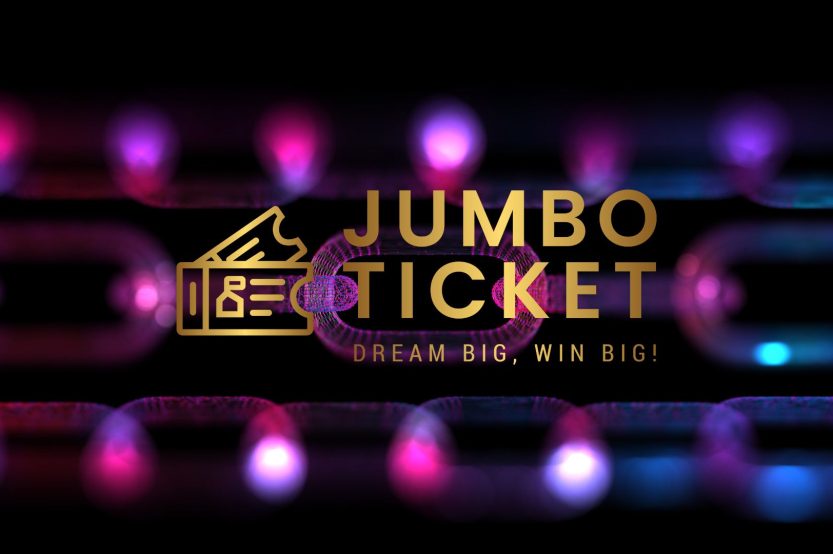Globally, the lottery industry faces challenges such as a lack of transparency and fairness as the digital economy grows. Therefore, advanced technologies such as blockchain are becoming more widely used and demanded. This article discusses the overview of the blockchain lottery and how it impacts lottery operations. It is, of course, the best key to these issues and transforms the lottery ecosystem. Do you know the lottery industry innovation will enable the distributed nature of blockchain technology?
What is blockchain?
There are many nodes in a computer network that share a blockchain as a distributed database or ledger. In a blockchain, information is stored as a secure and decentralized record of transactions. Blockchains used in cryptocurrency systems, such as Bitcoin, unlike third parties, guarantee loyalty and security of recorded data. It creates trust without the need for third parties like banks or the government to be trusted.
What is a blockchain lottery?
Blockchain-based lottery data is accessible to all participants, draw winners and lottery organizers due to their public storage on the blockchain. There is the possibility of making lotteries more democratic by introducing blockchain technology, which would provide a chance for more people around the globe to participate.
In addition to fairness, blockchain also solves several other challenges. Moreover, global availability presents a considerable challenge. There exist some geographical and legal barriers to participating in online lotteries.
The issues that blockchain solves in the existing lottery systems?
Most of us grew up playing lotteries, and you know lotteries are games of chance that come down to pure luck. All lotteries require the player to draw a series of numbers to win a prize.
Here is a list of a few problems the traditional lotteries face that blockchain technology could solve.
-
Fairness:
When we talk about lotteries, fairness is a critical component of the game. Right? However, traditional lottery systems have trouble cultivating trust within local communities. With a blockchain that provides a public yet secure ledger. Transparency is restored when information about the lottery is made available to all.
-
Trustability:
Money disbursement is another challenge in the lottery industry. In most cases, the winner receives the jackpot from the cash pool, which usually includes 50 percent of the proceeds from ticket sales. Mistrust arises because players cannot see where the money goes, so they don’t know whom to trust. On the other hand, a blockchain-based system allows everyone to see the amount raised from ticket sales. Furthermore, blockchain lotteries offer complete security with smart contracts that ensure the amount gets to the right person. It restores trust in an online lottery system.
-
Unfailing:
Lottery systems are often subject to fraud. Keeping the law and securing the operation are integral parts of this industry due to the prevalence of scams. Blockchain technology ensures a copy of the public ledger is maintained by every node (transaction validator), making it impossible to alter or manipulate. Due to the distribution of processing across multiple computers, blockchains do not allow any human intervention, thus preventing any chance of fraud.
-
Accessibility:
In many countries, lottery participation is illegal, which prevents large numbers of people from taking part. Decentralization mitigates this issue with blockchain technology. Most parts of the world do not have any restrictions on obtaining cryptocurrencies where one can get them from anywhere, so accessibility is not an issue.
Disadvantages of Blockchain-Based Lotteries
Even though blockchain-based lotteries have many advantages, they also have a few limitations that other platforms do not share.
All lottery transactions are recorded on a public blockchain, which everyone can access, and no one can steal your lottery ticket. It will still be possible for anyone who has access to the root node to see the information regarding your preferred keys because they will be in an immutable database. As a result, anyone seeking information on what numbers you have played in the past can view your entire transaction history.
Why Blockchain in the Lottery?
Payments and transactions have become simpler and more secure through blockchain technology. Because of the virtual impenetrability of the blockchain network, electronic transactions are safe and secure. The lottery ticket contains a unique key that when shown allows you to claim the lottery prize. Furthermore, blockchain platforms like RChain facilitate the tracking of all lottery transactions and verify their accuracy.
Conclusion
By implementing blockchain technology in lotteries, both players and providers can benefit from better drawing and ticket-buying processes. People can ensure distribution of their winnings will be based on all rules and regulations specified by each lottery and the decentralized finance option it provides. As a result of blockchain technology, you can purchase multiple lottery tickets for an event of your choice, regardless of where you are in the world.
Read more:

